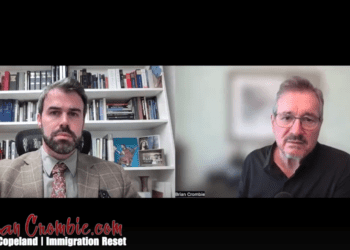 The government’s claim that it needs to buy an interim fleet of Super Hornets doesn’t stand up to scrutiny, writes Brian Lee Crowley.
The government’s claim that it needs to buy an interim fleet of Super Hornets doesn’t stand up to scrutiny, writes Brian Lee Crowley.
In an op-ed for the Winnipeg Free Press, Crowley calls the bluff of Canada’s Chief of Defence Staff on the issue.
By Brian Lee Crowley, July 4, 2017
To borrow from Charles Dickens, it was the best of times, it was the worst of times.
It was the best of times because a paper published by my institute generated a few sparks at a parliamentary committee hearing where our findings were used to call the government to account over its policy on buying a new fighter jet.
It was the worst of times, however, because the Chief of the Defence Staff, Gen. Jonathan Vance, tried to bluff his way out of the questioning by essentially claiming his expertise was greater than that of our huge sample of all the experts in the country who study these things for a living. Pride goeth before a fall.
The point at issue was the government’s claim that a newly discovered “capability gap,” combined with potentially five years needed to buy a replacement fleet for our aging CF-18s, meant that Canada couldn’t wait, but had to buy 18 new fighter jets right away.
Our paper assembled a comprehensive list of recognized experts in the field of national defence, and air power and military procurement in particular, and asked these experts whether the government’s rationale for an interim fighter purchase stood up to scrutiny. The bottom line? Nearly nine in 10 (88 per cent) of these experts agreed that the government should cancel the interim jet purchase and proceed immediately with buying a full replacement fleet for the CF-18s. A mere 6.6 per cent of the respondents agreed with the government’s position.
Vance harrumphed that he is an expert, too. True. Expertise does not confer infallibility, however, and that is why we surveyed as many experts as we could, to ensure our conclusions were based on the entire body of expertise in the country, not just the knowledge of one individual.
No doubt Vance could rightly respond that he has access to a huge body of expertise within the Department of National Defence. It might be worth taking a moment, therefore, to look at the use the government has made of this vast in-house expertise to inform its decision to buy an interim fighter fleet.
Take the decision that Canada faces an immediate “capability gap,” or an inability to deliver on its commitments to both NATO and NORAD. Everything about the interim purchase hinges on the credibility of the capability gap. If there is no gap, we have the time to buy a proper full replacement fleet and avoid potentially high and unnecessary costs, especially if the interim fleet and the final CF-18 replacement fleet end up being different planes.
According to our survey of experts, the widely accepted number of fighter planes needed to fulfil operational requirements on a non-emergency basis has long been held to be 65. We currently have 77. And most experts surveyed think acquiring a permanent fleet would take much less than five years.
To make the credibility gap exist, it was necessary for the government to change a decades-old policy that our NATO commitment was on “standby.”
Yet, appearing before a parliamentary committee as recently as 2016, the RCAF commander, Lt.-Gen. Michael Hood, went to some pains to refute the idea that there is an urgent capability gap.
And, curiously for a man who rests complacently on his expertise in defending his suddenly discovered and compellingly urgent capability gap, Vance somehow neglected to consult his presumably expert colleague, the RCAF commander, who revealed he was “not privy to the decisions behind the change.”
Neither Vance nor the government’s recently released defence review has offered detailed evidence why Canadians should agree that the strategy pursued by successive Canadian governments for decades has become so inadequate in the past year.
Perhaps most damning for a government that prides itself on evidence-based policy-making, the government has silenced the 235 military personnel and civilian bureaucrats directly involved in the fighter aircraft replacement program. They were forced to sign unprecedented lifetime gag orders — a curious thing if the government thought this considerable body of expertise would back the interim fighter decision.
Policy-making is, of course, the government’s prerogative. It is likewise the prerogative of those who must live with those policies to ask tough questions about whether they are good for Canada, and to call on the best available expertise in the country in seeking the answer.
For Vance simply to claim he’s an expert, too, is no answer at all.
Brian Lee Crowley is the managing director of the Macdonald-Laurier Institute, an independent non-partisan public policy think tank in Ottawa.




